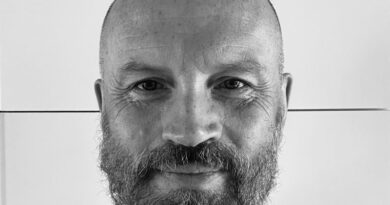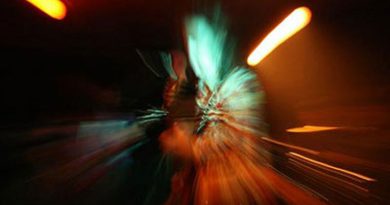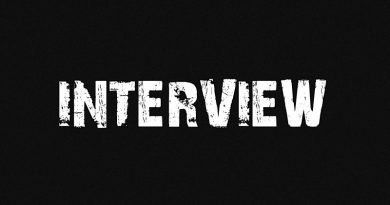In Search Of Tone: Jack Townley Of Elephant Tree
Elephant Tree had a big year last year with the release of Habits. It was an outstanding follow up to their already outstanding Self-Titled release a few years prior. I look forward to the future of this awesome band, with hope of another epic release in 2021. Jack Townley is the man behind the guitar and mic. It was a pleasure discussing many aspects of music creation with him and his perspective is a fun one. He really enjoys what he’s doing and after our interview, I spent quite some time playing guitar myself. Thanks for being an inspiration.
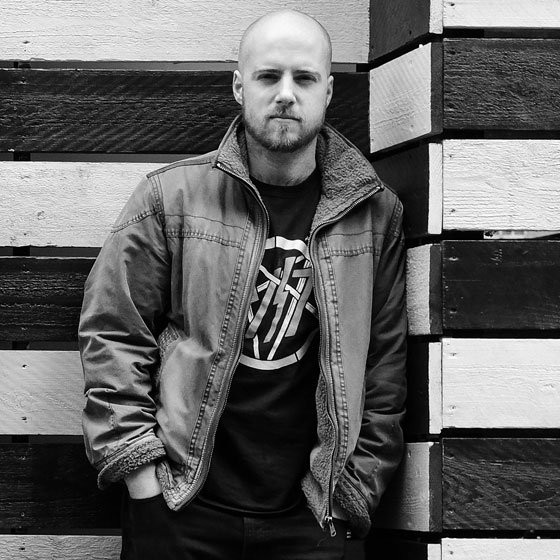
Hey Jack, thanks for chatting with me. The basic idea of this interview series is to get the perspective of guitar tone and songwriting from some of my favorite bands.
It’s a good project for everyone, especially at this time with everything that’s going on. There is no time like now to learn that sort of thing. I’m very happy to be involved.
Jumping right in with gear, what kind of amps are you currently using?
To start off with, as a guitarist I don’t know much about amps. I feel like I should be honest about that because someone might ask you if you like football, or baseball, or something and you make the mistake of pretending that you do. Within 5-10 minutes you’re way out of your depth and you have no idea how to rescue yourself from the situation.
A lot of people say ‘how do you get your tone’. I think the most important thing, from a beginners point of view as well, is enjoyment. I know in our scene especially, there is a lot of snubbery about amps, tone and spending more money about getting a good sound, or obsessing over a pedal board or a wall of amps. How I get my tone is if I think it sounds good, it gets on the record. That could be anything from a vintage Marshall we used on Habits, to my stage Blackstar I use, to a deliberately broken amp we found in the corner of the studio.
The most important thing is to go in with an open mind. You should definitely go in with an idea of what you want to achieve, but it can also work against you thinking you need to sound like Sleep, or have £50,000 worth of Orange amps behind you. Amps are like tools, you should make music with your head and use the amps as you see fit. That being said, there are bands with that wall of amps that sound amazing! For where I am, not that knowledgeable, I go in with a creative point of view, rather than a technical point of view.
it can also work against you thinking you need to sound like Sleep, or have £50,000 worth of Orange amps behind you….
That helps me because I don’t know a lot about amps either.
There are a lot of great guitarists who know a lot about the circuits involved, the history of the circuits, where those circuits have moved between companies and why the engineers moved from say Madtown, then went to Marshall and made this amp because they had experience with Orange, which is cool but for me, I don’t have time to know all that. I’ve got a job and kids [laughs].
When dialling in your tone, do you use a clean tone or use some of the amps gain?
I use a straight clean tone, especially live. I set up my pedal board so it works like that. As a touring band, you need to be able to rack up on stage, stick your set up on and use it regardless. As long as you have a good clean channel you can work with.
But, with the new album, we had the luxury of using a lot of good amps in the church. I used mainly an Orange Dual Dark on Habits. We tracked everything live first, using my Big Muff Deluxe and my Fender Jaguar, which is where I get most of the tone from. I’ll usually crank the Big Muff and mess with the Jaguar to get that tone. With the Dual Dark, I plugged directly into it and worked with the amp in that sense.
We did have the luxury of time however, so there were hundreds and hundreds of takes of different tones and such. It’s very much trial by error and experimenting until we got something we liked. It was a lot of learning about what sounds good with the tracks we’d written. So in that sense the tracks came first and then the tones.
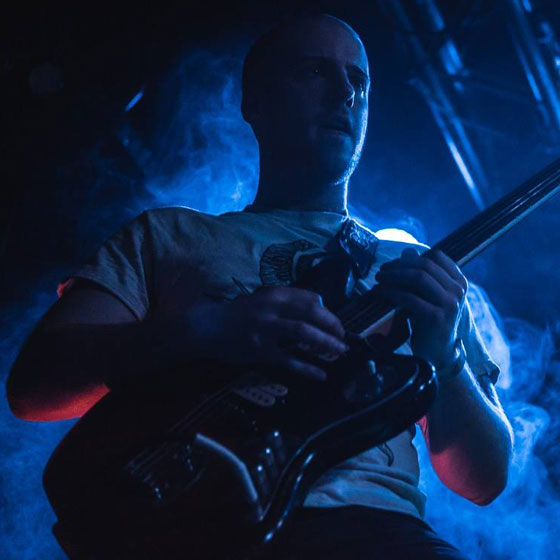
You mentioned the Big Muff Deluxe, what other pedals are on your pedalboard?
Live, I don’t use anything but the Big Muff Deluxe as far as fuzz is concerned. I do have a Guv’ner Blues Drive. I have a MXR Univibe. For delay [laughs], I’m actually using the cheapest delay pedal I could find in a German music store. We were on tour and my delay broke. I thought blasting at 120dB no one is going to give a shit if they’re hearing a true analogue delay. You can spend all the money you want on modulation and stuff, but when it’s blasting out of a rig in front of 600 people that are all fucked. They don’t care if you’re playing a 600 pound boutique delay pedal [laughs]. That shit only matters when you’re in the studio. That’s just my personal view and NOT the rest of the band.
You have a good point [laughs]. I went to a concert in Asheville with six bands. Pallbearer was up fifth and put on a great show, but after watching Mothership, The Skull, Torche and Windhand, I had a hard time hearing the vocals [laughs].
Yeah, I know I don’t care if I’m listening to a band and think ‘oh they aren’t using a true analogue delay, let’s go outside and have a smoke’ [laughs].
Big Muff Deluxe. I recommend it. Especially for beginners. I got it as a beginner because it’s simple and great…
Is your Fender Jaguar your main guitar or do you have an arsenal of guitars to choose from?
That’s my main guitar. Basically, I had a 1972 fender Strat that unfortunately got stolen. Sam the drummer was kind enough to let me use his Fender Jagstang, Kurt Cobain special. I loved the sound of it but couldn’t afford a new guitar. A few years later, I was able to get my own Fender Jaguar which is what I’m using now. I just love the sound of them. I’ve tried Gibson’s and they are good guitars, but there’s something about the Jaguar as you get this lovely sort of low sustain. The low mids are just so warm and powerful, especially with thicker strings. They feel heavy and you get some sort of physical feedback from playing those sort of things.
Is there a guitar, amp or pedal you have had for a long time and will never part with?
Big Muff Deluxe. I recommend it. Especially for beginners. I got it as a beginner because it’s simple and great. Big Muff Pi’s are great but they tend to break when touring. The Big Muff Deluxe has digital aspects so you can’t blow out a transistor or diode or something. I think it’s affordable, or reasonably affordable, for a great sound. I think its £120-130, about $150. It’s what we used on Habits and the Self-Titled albums. We used a Big Muff Pi on Theia actually. But, it’s a great pedal, it’s hearty and does loads of different things. That would be my main recommendation. You’re going to play guitar, you’re going to play heavy shit. Get a Big Muff Deluxe.
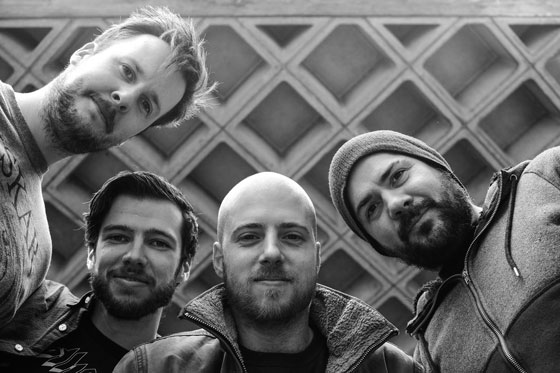
You guys have awesome heavy songs like Faceless and Dawn but also calmer songs like Bird and Circles. What is your writing process like for the epic songs?
The actual writing of the songs, we all bring ideas in and it actually changes from album to album. On Habits, one of us would have an idea, we start with some chords, bring it together as a band, then we all argue about it and fight [laughs]. Then we buy each other some pints and come out with a reasonably good interpretation of the idea as a group.
For example, Bird, I wrote that for the birth of my first daughter, that was important for that album, the ideas and the feelings before the tone or the heaviness. If you get the ideas down, the melodies, and the song, gets easier to add that heavy element. We didn’t go in with heavy riffs, we went in with the songs and then built them up. That style of writing was more specific to Habits.
We didn’t go in with heavy riffs, we went in with the songs and then built them up. That style of writing was more specific to Habits…
You mentioned some new projects possibly in the works. That’s exciting. Is the writing process going to be similar to Habits or will it go in a different direction?
We aren’t writing an entire new album, but do have some new projects in the works. We’re writing the songs for these projects with a similar style. And we’re the same as you; we’ve been fucked by COVID. We’re lucky in the sense that no one is ill, we have lost some jobs and such, but in terms of the band it just means we are on hold.
We don’t know if we should commit to the whole remote thing, or hold off until we can get back into the studio. We would rather wait to meet in person, not because remote doesn’t work, but more because we’re in no rush to do something new, although we have invested in some remote stuff because we just don’t know.
Our government over here gives us a new update every day. I know most of our tours have been cancelled this year, so as far as touring we are definitely looking toward 2022, potentially even later. I don’t know if it’s the same for you but it’s hard to find inspiration at the moment.
As a guitar player myself, I find I have more off days than on. What do you do if you’re having an off day and how do you turn it around?
That’s part of it man [laughs]. For Habits, we were in the studio with Riley MacIntyre, our producer. We spent so much time in the studio, that there would be nights where it would be me and the producer, or Pete [Holland] and the producer, or just two guitarists and we would have been drinking or whatever. The next morning we’d come in and there would be a track we recorded under the influence of, God knows, whatever you can find at 3am. There would be a track with like 50 meladrones on it and you’ve written a really shitty Gary Newman track [laughs]. We would sit there and say ‘what have we done’ [laughs].
As far as off days, we’ve had more than our fair share. I’d say we get about 40% off days. It’s ok and you shouldn’t be ashamed for off days, or writing a shit idea because that’s part of it you know. You’re not going to make good songs all the time. Not everyone is Paul McCartney.
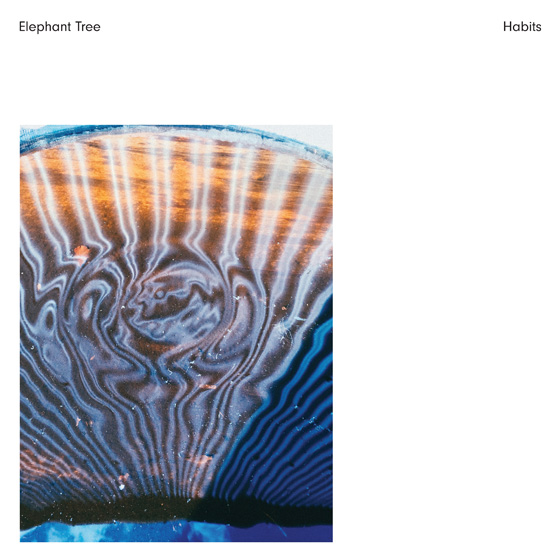
With a finite amount of chords and notes, how to you create unique music without repeating yourself or others?
I think that question is directly related to us because we don’t use fancy chords and we’re not that complex when it comes to chords and progressions. We are not Rush, Mogwai or Torche, that sort of thing. I think we’re not fucking good enough to play complicated stuff. But, what we are good at is writing melodies and vocal progressions. We write heavy stuff, but the chords are all easy. Anyone can play them.
That’s a direct consequence of me not being a prog guitarist, more grungy. I’m a grunge fan and I grew up on that sort of thing. We wanted to have a good melody vocally and catchy. I think you can write an amazing song on one chord. If you listen to Sails, the opening track on Habits, that’s one note, not exactly hard to play. We wanted to write simple music, with good melody that appeals to everyone. I think it’s someone that anyone can do. We were fortunate enough to be put in a great studio, with a great producer, which is why it sounds great. I think you should be able to play these songs on an acoustic guitar and stills sound as catchy.
Have you thought of doing an acoustic album?
Yes, in the next few months because of the new lockdown, we will be doing some of the Habits tracks acoustic.
I think you can write an amazing song on one chord. If you listen to Sails, the opening track on Habits, that’s one note, not exactly hard to play…
Going back to grunge, I love when Pearl Jam, Alice in Chains, Chris Cornell, to name a few, play their songs acoustically. It sounds amazing and now I’m excited to add Elephant Tree to that list.
Like you said with Chris Cornell or Eddie Vedder, those songs sound great on acoustic and could have even been released as an acoustic album. I think that’s a good point for people wanting to write songs. You can write the heaviest riff in the world but it doesn’t mean it will be a great song, it just makes a heavy riff.
Do you have any practice routines or warm ups you do on a daily basis?
No [laughs]. We have played a lot of gigs, played all over the world and I think a lot bands played after us and destroyed us because they have great warm-ups and practice a lot more than we do. Our pre-gig ritual is ten to twelve pints and to keep our bassist from smoking anything untoward, and basically just look after him [laughs].
In terms of practice, no, we practice as a band and… I’m trying to think of something to say but know I don’t practice [laughs]. I have an acoustic guitar that I play often and back before COVID, we had practiced twice a week and had gigs, so there was no need to practice more in-between.
If you want to practice anything as a guitarist starting a band, practice fixing your rig, if anything goes wrong that’s the best thing to practice. It isn’t Van Halen style warm-ups or putting your hands it hot water for dexterity. You’re five pints in, your fuzz pedals gone down and someone’s just fucking spilled a pint on your guitar. What do you do? Damage control on stage I think is the hardest thing as a band.
That’s why I don’t like rigs of eight Orange heads on five different cabs, if one goes down, it can be difficult to figure out what’s wrong. If you go out with one amp, one speaker and one fuzz pedal, it can sound great. I’m speaking as a guitarist that’s clueless [laughs], a simple mind needs a simple set-up.
Band Links: Official | Facebook | Bandcamp | Twitter | Instagram
Interviewed by: Josh Schneider

